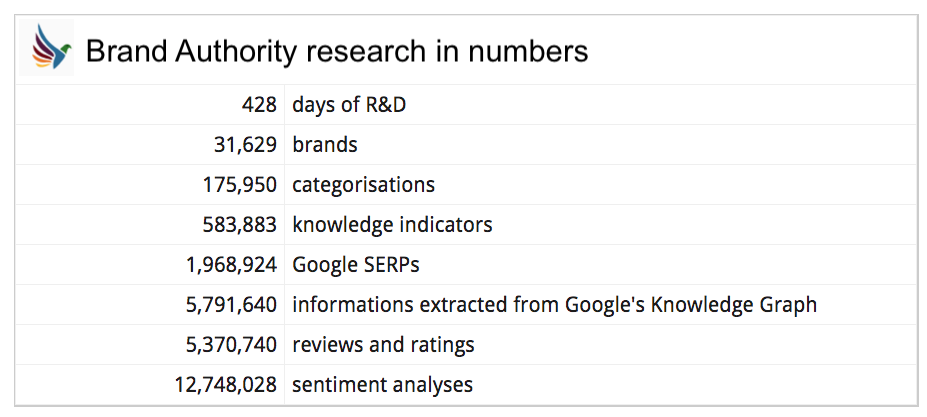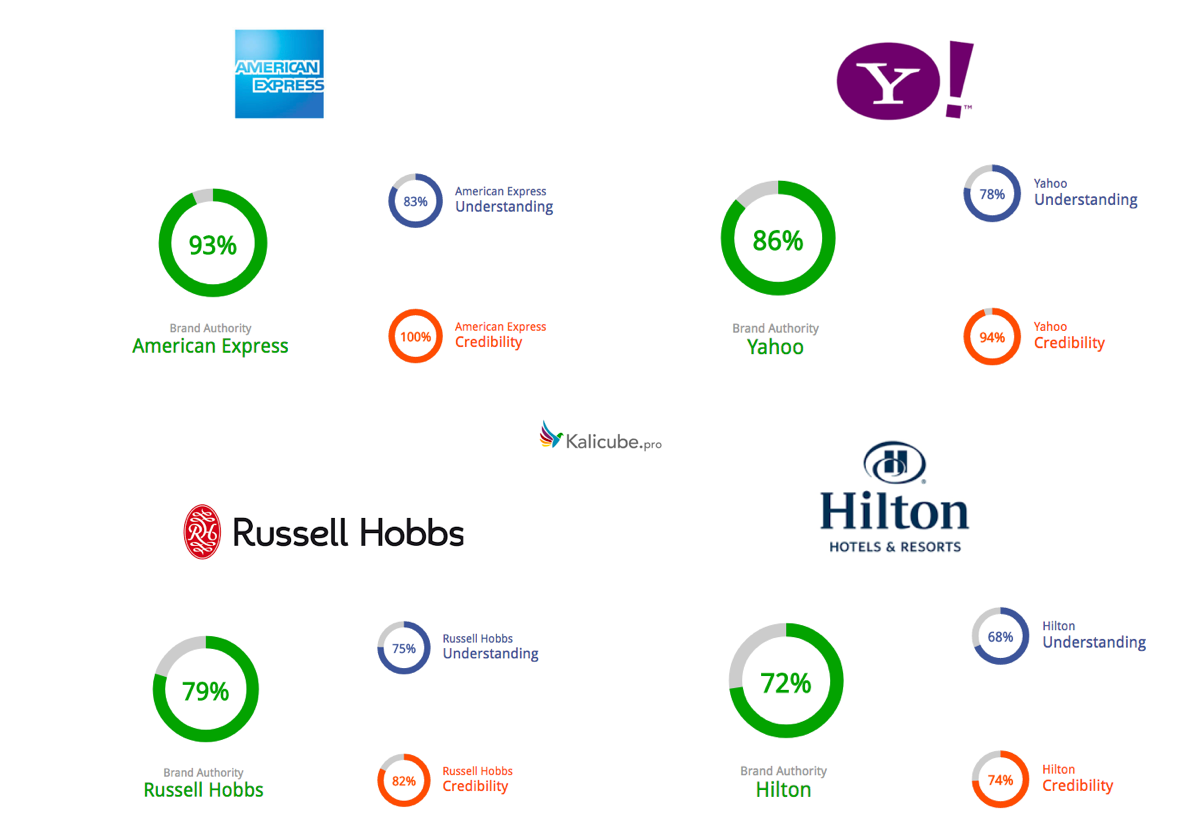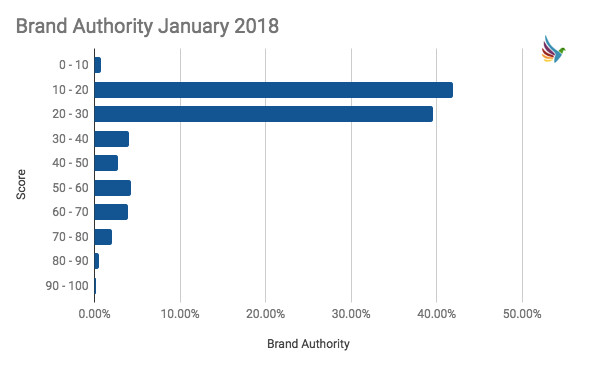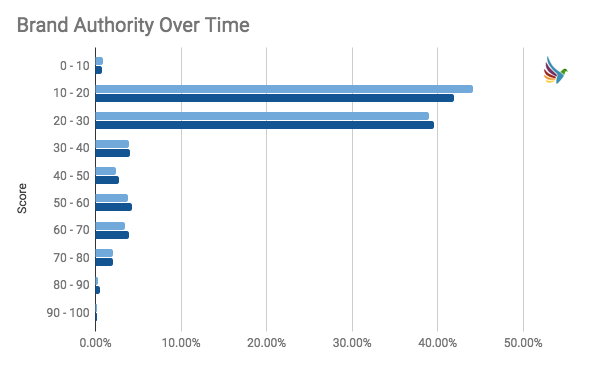In my previous article, I placed understanding and credibility as the two central pillars of Answer Engine Optimisation (AEO). They are two words that I use again and again (and again) in articles, conferences, discussions with clients and colleagues... and probably in my sleep too.
I hope that by exploring what understanding and credibility mean in the context of Search, I can provide an approach to SEO / AEO that is (relatively) simple and yet effective.
I don't believe it is necessary (or even necessarily helpful) to seek to grasp the inner workings of Google's algorithm when setting out an SEO / AEO strategy for a brand. The time spent on that will be substantial and is time not spent on the business end of things - your strategy, its implementation, and its ROI.
There are many great people out there who spend a whole lot of time on the finer aspects of Google's algorithm, and (if you are interested) can explain to you how they (probably) function. I love what they do. I avidly read their articles. But from an ROI perspective, doing that is unlikely to be profitable for most people. If you want to delve deeper, I encourage you to read the more involved articles of Bill Slawksi and those like him. Then expand your reading to the Google patents that Bill and others spend their time reading and analyzing.
Maybe think of it this way: Knowing the detailed mechanics of a car from piston to axle to bumper is not necessary to be able to drive the car, but the insights you gain from the knowledge of some of the mechanics can sure tell you a lot.
Hopefully, understanding and credibility is an approach that will save you the need to dig too deeply into the inner workings of Google's algorithm :) Please read on...
The approach in its simplest form

In short: Google's understanding of your brand and its assessment of your credibility are fundamental to your SEO (short-term) and AEO (longer term).
Although pretty conceptual, understanding and credibility are the central pillars to any strategy that hopes to be successful and sustainable. Read a detailed explanation in my previous article.
Measuring Understanding and Credibility
Given their conceptual nature, these are pretty difficult to pin down. It is very hard for brands to see where they stand ... or measure how their hard work in communicating and convincing is progressing. And If understanding and credibility are central pillars to your SEO / AEO, such a lack of visibility is a BIG commercial problem.
Doing It By Hand - Ask Google
How to get a superficial overview of Google's understanding Search {BRAND} on Google... That SERP gives a simple view of Google's understanding of your brand and brand message. How to get a superficial overview of Google's assessment of credibility Search {BRAND review} on Google... That SERP (Search Engine Results Page) gives a simple view of Google's evaluation of your credibility.I did exactly this for my clients in 2015.
And it was 100% fine for a few clients on a monthly basis. But it definitely doesn't scale. A quick four-step story behind this:
2015, I manually collected brand-related SERPs and analyzed them by hand to help my clients improve their digital business card (what appears when a user searches their brand name). Simple proactive Online Reputation Management, if you like. 2016, clients were asking for comparable data on their competition, so I collected data on multiple brands in a specific market and created a rudimentary qualitative measurement of online reputation. 2017, with too much dull manual work on my plate, I automated the collection of the SERPS and standardized the calculation of my qualitative measurement (using Google's sentiment analysis API)... I got ambitious and expanded the data collection - increased the number of questions I ask Google, integrated categorization (using Google's natural language API), added the Knowledge Graph API, and expanded to 25,000 brands. As you can see, I asked Google a lot!
As you can see, I asked Google a lot!
So, over 2017, the more data I looked at (and the more I looked at the data!), the more I saw understanding and credibility as pivotal in Google's central " strings to things" message... (warning, this is from 2012)
So I wrote a simple algorithm to leverage this data into scores for understanding and credibility.
Please bear in mind that I am confident these metrics are both meaningful and useful... But I do not claim that either metric is a ranking factor, an official figure or anything other than "Jason's measurement of Google's opinion".
Measuring understanding and credibility at scale - ask Google.
The aim here is to provide two simple, industry-comparable metrics:
Google's understanding of a brand. Google's assessment of the credibility of that brand.Hopefully, these metrics allow brands to evaluate their (relative) current standing in Google's eyes and assess their progress in communicating and convincing.
The approach is to "ask Google". Simple but very effective
Details of "asking Google":
1 - Understanding
Collect several brand-related SERPs * {brand} {who is brand}, etc.
Measure the accuracy Measure the sentiment Measure the supplemental real estate (Knowledge Panel, rich site links, People Also Ask, etc.) Measure Google's capacity to categorize a brand from the text it just returned.Google's Official Knowledge Graph
Pull explicit data (including relevance) from Google's official Knowledge Graph using its API (developers can have a play here, everyone else on this user-friendly interface).2 - Credibility
Collect several credibility-related SERPs * {brand reviews} {opinion brand}, etc.
Evaluate the sentiment. Evaluate the ratings and reviews that rank. Evaluate the supplemental real estate.Brand Authority
Since credibility without understanding - and understanding without credibility - don't make sense in the context of SEO / AEO... We can perhaps bring understanding and credibility into one single measurement. Brand Authority.
Brand Authority means different things to different people. The term can be confusing since there is no single agreed-upon definition. Bear with me - in the context of SEO / AEO today, my approach is:
Brand Authority is a metric that combines how much Google understands about a brand, and the credibility it attributes to that brand.
Brand Authority: Asking Google Makes Sense.
So, we have individual scores for understanding, credibility and Brand Authority. These three scores allow brands to visualize their situation and progress in their efforts to communicate (improve understanding), convince (improve credibility) and ultimately gain a competitive advantage.
Here are some examples (not my clients !) of these metrics using the "ask Google" approach described above
 Examples of very good Brand Authority scores - all in the top 5%These scores may seem low for such big brands. But the scoring is representative of how Google is struggling to move from basic understanding to more complex understanding of brands. For a little more about basic and complex understanding, read this article - about halfway down.
Examples of very good Brand Authority scores - all in the top 5%These scores may seem low for such big brands. But the scoring is representative of how Google is struggling to move from basic understanding to more complex understanding of brands. For a little more about basic and complex understanding, read this article - about halfway down.
For the Geeks: Data Distribution (remember, I am measuring - 25,000 brands)
Here is the distribution, based on my tool Kalicube.pro, that measures brand authority. Only 14% of brands are scoring above 30. Precious few are in the top 10th percentile.
This distribution is logical, given the dominance of big brands over the multitude of smaller brands. Initially, it might seem a little extreme. However, when one considers the lack of complex understanding Google has of the vast majority of brands, the bottom-heavy distribution makes sense.
 Brand Authority Score Distribution January 2018
Brand Authority Score Distribution January 2018
And, as Google improves its understanding, that distribution is (logically) shifting upwards and becoming more representative of what one would expect for the relative "weighting" of Brands (their relative place in the world pecking order :)
 Dark blue is January 2018, light blue is mid-2017
Dark blue is January 2018, light blue is mid-2017
Bing / Amazon
These measurements also apply to Bing. Although Microsoft is behind in this race, it is still in the game. Just like Google, it recognizes that understanding the world is a requirement if it wants to be able to provide credible answers to its users, it is evolving from a search engine to an answer engine... and it has its own knowledge graph.
Importantly, it has Amazon on its side. Microsoft is the engine behind Alexa (currently 70% of the voice assistant market in the US) and is also the engine driving answers on other players in that market – Samsung Sonos... with others surely to come.
Innovative SEO services
SEO is a patience game; no secret there. We`ll work with you to develop a Search strategy focused on producing increased traffic rankings in as early as 3-months.
A proven Allinclusive. SEO services for measuring, executing, and optimizing for Search Engine success. We say what we do and do what we say.
Our company as Semrush Agency Partner has designed a search engine optimization service that is both ethical and result-driven. We use the latest tools, strategies, and trends to help you move up in the search engines for the right keywords to get noticed by the right audience.
Today, you can schedule a Discovery call with us about your company needs.
Source:





